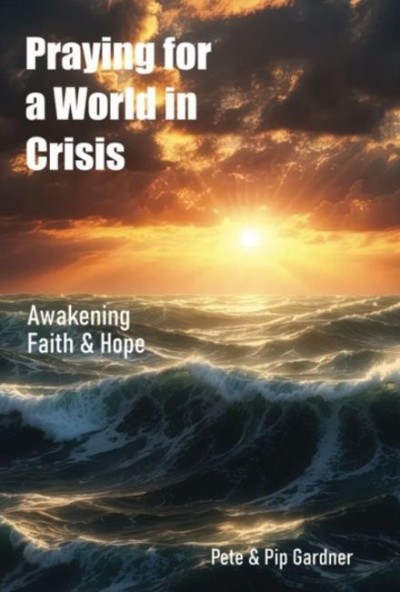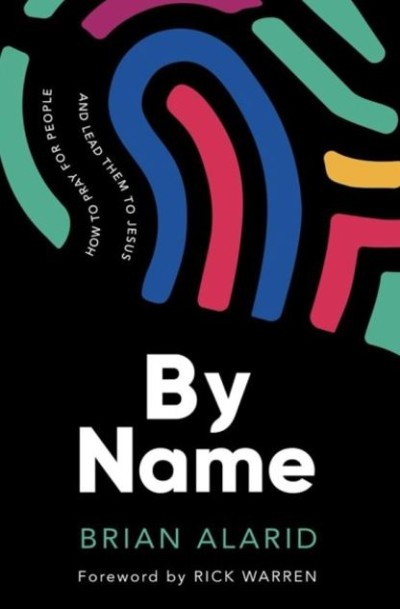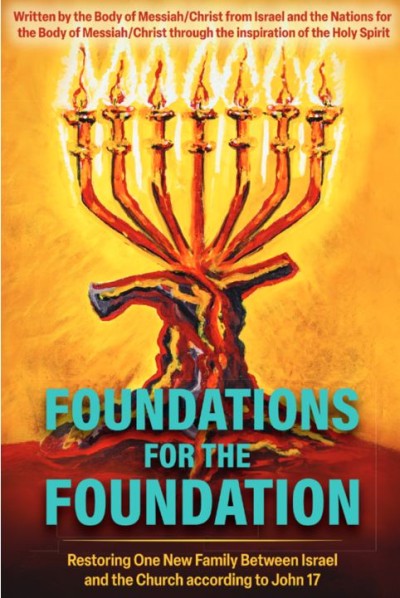Links to all IPC Projects:
https://linktr.ee/ipcprayer
110 Cities Prayer
www.110cities.com | Daily Prayer Fuel Sign Up
Global Family 24-7 Prayer Room
https://www.globalfamily24-7prayer.org/
Prayer Covenant for Children Mobile App
theprayercovenant.org/mobileapp/
Pentecost Global Day of Prayer Replays
VIEW AND WATCH ON YOUTUBE HERE
Interseed House of Prayer App
https://prod.global.interseed.io/link/groups?id=146
7 Days on the Wall - 11-17 Aug 2025
www.jwipn.com
24-7 Week of Prayer – 1-7 September 2025
https://www.24-7prayer.com/weekofprayer
10 Days Video Launch – 5-22 September 2025
https://www.10daysfilm.com/
Prayer Boot Camp - Europe Shall be Saved - 12-15 Sept 2025
https://www.facebook.comS
hine! - 24 Hours Prayer for the ‘Light of the World’ movie – 19th Sept 2025
https://www.2bc.world/shine
Lausanne Congress Reunion Online - 22 Sept
www.lausanne.org
Communion Revival Oct 9-12th
https://awakenthedawn.com/communionamerica/
15 Days of Prayer for the Hindu World
12-26 October 2025
https://110cities.com/hinduism/
Eurasia Prayer Summit – 13-15 October 2025, Malta
www.asiaprayersummit.id
Global Day of Prayer for the Hindu World
20th October 2025 – From 8am (EST)
https://110cities.com/hinduism/
Praying for a World in Crisis: Awakening Faith & Hope
Why is the world in crisis? Do we have a role in ending it? What unseen powers are at work, and does the Bible have anything to say about this? Is there hope? What is the ‘day of the Lord’, and why does it matter?
These are some of the questions addressed for engaging in international prayer for a world in crisis.
This book is a wake-up call for the times we are living in. We examine the inter-relationship between geopolitics, cosmic powers and the Great Commission with regard to why the world is in crisis and on the verge of a possible third world war, and how we as believers and as the church can engage effectively in prayer and mission in such challenging but rewarding days, and bring this age to an end.
Order ‘Praying for a World in Crisis’ on Amazon ($12.56)
WHAT OTHERS ARE SAYING ABOUT THIS BOOK...
"This book provides hope in the midst of uncertainty and perplexity. It challenges us to levels of prayer that possibly many of us have either neglected or forgotten. It provides a lens of reality and challenges us to the brevity of time left before the most extraordinary moment of history occurs – the return of Christ. It is my hope that this book is placed in the hands of every leader and intercessor who wants to be part of the emerging strategy the Lord has prepared for his people in these end times."
Rev. Dr Alistair P. Petrie Pastor, author.
Executive director of Partnership Ministries, Canada
"‘Praying for a World in Crisis’ has come out of a lifetime of ministry that has taken Pete and Pip into the seriousness and deep challenges of spiritual warfare that the church faces, whilst at the same time bringing revelation as to how the body of Christ can and must respond to the immense opportunities those challenges present."
Ian Cole, World Prayer Centre, Birmingham, England, UK.
"This is a rich tapestry, woven together to reflect and depict God’s perspectives through a biblical, historical view that relates to the contemporary life and global challenges that mankind is facing. The authors challenge us to get praying for the kingdom of God to come more powerfully than ever before."
Brian Mills, senior advisor, International Prayer Council. UK
"You will be stirred and challenged as Pete and Pippa share their battle-tested knowledge and experience based on their global research and biblical reflection. This is a must-read."
John Robb, Chairman, Transformation Prayer Foundation.
Co-Ordinator for the Unreached Peoples Task Force, USA
Fire on the Family Altar: Experience the Holy Spirit's Power in Your Home
“As the family goes, so goes the nation.”
Nations are in turmoil because of satan’s attack on the family. As countless households have surrendered to the slumbering spell of the spirit of this age, the world has increasingly fallen into decay. But there is hope! Destruction of this demonic agenda is possible, and it begins at home!
“Revival will come to a nation when the family altar is restored.” Cheryl Sacks, a dynamic Kingdom leader and prophetic intercessor, heard these words from the Lord. Today, she is wholeheartedly working to turn the tide by filling households across the nation with Holy Spirit power!
In Fire on the Family Altar, Cheryl offers prophetic decrees and practical instructions for restoring the family altar in your home, so you can operate in the strength that God created families to maintain within culture.
In this bold book, you will discover how to:
Pray supernatural prayers that catapult children into divine destiny.
Bring your household into encounters with the Holy Spirit.
Safeguard your family from the powers of darkness.
Raise up Kingdom reformers who will shape and impact every sphere of culture.
Don’t allow the spirit of this age to hold families captive any longer. One righteous family can make a difference! Restore the family altar in your home, and spark the flames of revival!
Available on Amazon
More info
By Name: How to Pray for People and Lead Them to Jesus
Billions of people don’t know Jesus, but God has given you and me the power to change that — and it all starts with prayer.
As you pray for people by name, Jesus gives you His love for them and begins to open their hearts to the Gospel.
In By Name, Brian Alarid will equip and inspire you to pray for people and lead them to Jesus using the five lifestyle habits that Jesus modeled: pray, listen, eat, serve, and share.
This book will help you love people like Jesus and impact your friends, family, neighbors, classmates, and co-workers for eternity.
Brian Alarid is the President and Founder of America Prays and World Prays and the Chairman of Pray For All. He is the author of two books: When People Pray: What Happens When Ordinary People Pray to an Extraordinary God and By Name: How to pray for people and lead them to Jesus.
Brian has a Master’s Degree in Organizational Leadership from Regent University. He has been married to Mercy Alarid for twenty-seven years. They reside in Guatemala City with their three children.
Order ‘By Name’ on Amazon (new from $12.00)
Foundations for the Foundation is a powerful and timely book written to help everyday followers of Jesus understand God's heart for unity between Jewish and Gentile believers.
Rooted in Jesus’ prayer for oneness in John 17, this short but deep book highlights vital biblical truths that have often been lost or misunderstood throughout Church history.
The book explains how Jesus (Yeshua in Hebrew) came first to the Jewish people and how the early Church was birthed by Jewish believers. Over time, however, the Church became mostly Gentile and distanced itself from its Jewish roots. This separation has led to division and even centuries of misunderstanding and mistreatment of the Jewish people by Christians.
Now, as more Jewish people are coming to faith in Jesus than ever before, God is inviting His Church to heal this historic rift.
This restoration is not about going back to the Old Testament law but reconnecting with the full story of the Gospel—one that includes both Israel and the Nations.
The authors describe this as forming “One New Family” or “One New Man” (Ephesians 2), where Jews and Gentiles stand side by side, united in faith, purpose, and love.
Each chapter, written by respected Christian and Messianic leaders, explores different aspects of this reconnection - from understanding God’s covenant with Israel, to embracing our shared calling in the Great Commission, to learning how united prayer plays a vital role in God’s end-time purposes.
The book also emphasizes the need for love, humility, and repentance, especially from Gentile believers, to rebuild trust and partnership with Jewish believers.
Written in a clear, humble, and Spirit-led tone, Foundations for the Foundation isn’t about theology alone - it’s a call to action. It invites believers to return to God’s heart, align with His purposes, and take their place in a global move of reconciliation and revival.
Whether you are new to faith or a long-time believer, this book will open your eyes to the “Israel piece” in God’s redemptive plan and help you walk in greater love, unity, and spiritual power as the Body of Christ prepares for the return of the King.
The book is available as a print pdf / e-pub format for FREE - HERE
It will be available as a paperback book in the fall
Join the Online Global Prayer Movement with the Interseed App!
Imagine thousands of believers from every nation, tribe, and tongue united in prayer—lifting their voices day and night before the throne of God. With the Interseed Online House of Prayer app, this vision is becoming a reality.
Developed to mobilise united, Scripture-led prayer for the nations, Interseed is more than just an app—it’s a growing global prayer family.
Whether you're on a lunch break, commuting, or awake in the night, you can log in and instantly join with other followers of Jesus to intercede for cities, nations, unreached people groups, and urgent needs.
At the heart of the app is the Prayer Wall—a live feed where believers post real-time prayer requests and praise reports. You can respond with a tap, adding your voice to prayers already rising like incense before the Lord (Revelation 5:8). Every “amen” is a vote of faith in the power of God to move!
You’ll also find daily prayer points, themed prayer rooms, and video devotionals from prayer leaders around the world. Whether you're passionate about revival, mission, justice, healing, or the next generation, there’s a space for you to engage and grow in your calling as an intercessor.
Dr. Jason Hubbard, Director of International Prayer Connect, says:
"We’re witnessing a new era of global, united prayer—Interseed is helping us connect and pray as one Body across time zones and cultures."
We invite you to download the app, create a free account, and take your place in this extraordinary, end-time movement of prayer.
- Post your own prayer requests
- Pray for others and mark them as prayed for
- Join virtual prayer rooms focused on strategic regions
- Receive real-time notifications for urgent global needs
- Be strengthened and encouraged through community prayer
Let’s fill the airwaves with prayer.
Let’s believe for awakening, revival, and the fulfilment of the Great Commission in our day.
Download the Interseed app today on iOS or Android
Visit https://interseed.io to learn more
Together, let’s build a canopy of prayer across the nations - until the earth is filled with the knowledge of the glory of the Lord!
Christian Lioness wins Young Player of the Euros
01 Aug 2025England’s Michelle Agyemang, 19, has been named UEFA Women’s EURO 2025 Young Player of the Tournament. A bold Christian witness on and off the pitch, she wears crosses on her socks, shares gospel music as her pre-match soundtrack, and openly credits her faith for her journey. Agyemang is part of the Christian group Ballers in God and includes a cross in her Instagram bio. Her breakout performance during the tournament was marked by critical goals, including a last-minute equaliser in the semi-final and a crucial penalty in the quarter-final that helped the Lionesses progress. After England’s thrilling win in the final, she gave glory to God in a live interview: “It’s only by the grace of God.” Remarkably, just four years ago she was a ball girl watching some of her now-teammates play at Wembley. Agyemang’s humility, gratitude, and dedication shine through her story. She honours her teammates, coaches, and staff for their support, seeing her rise as a team effort and a testimony to God’s faithfulness and grace.
Arch Bonnema, a 72-year-old businessman from Oklahoma, has spent decades funding and participating in global mission work. For years, he worked in estate planning and precious metals sales to support monthly mission trips. While he previously focused on Africa, God unexpectedly opened doors for fruitful ministry in Pakistan, a country he never intended to visit. There, Arch has distributed nearly 30,000 Urdu-language Audio Bibles - small music-box devices ideal for Pakistan’s 43% illiterate population. People gather around to listen, much like families once did with radios. Amazingly, over 90% of the devices still function after three years. Arch preaches via mobile phone six days a week to small groups gathered by his Pakistani team, often beginning at 11 p.m. Oklahoma time. He’s also recruited 13 other U.S. pastors to join this digital mission via WhatsApp. Arch’s passion for evangelism began as a teen and never waned. He and his wife have travelled to over 34 nations and completed 350 mission trips. “I’ve seen more salvations after 65,” he says, praising God for technology that multiplies his reach.







